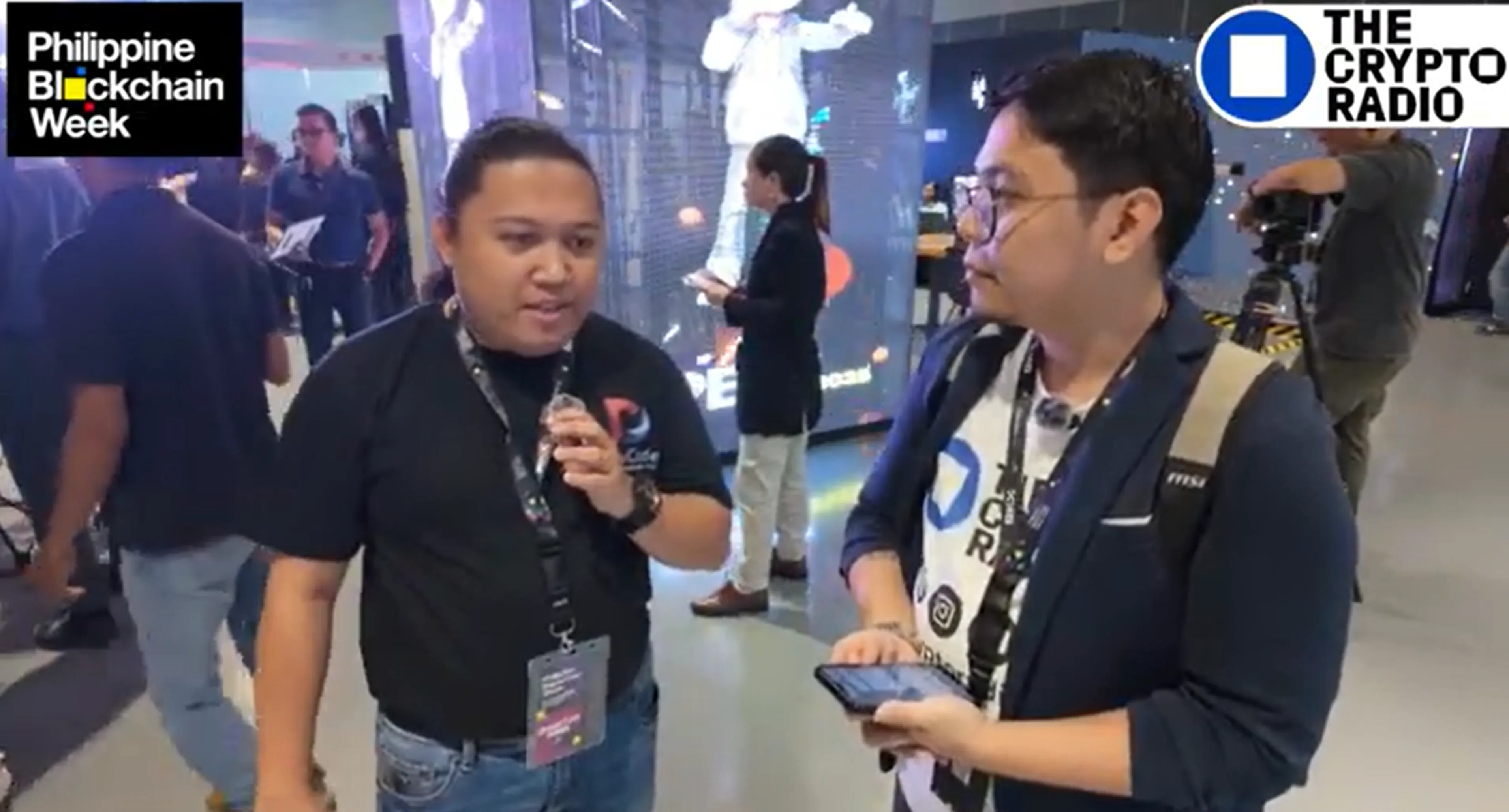Eliezer Rabadon is calling time on dev invisibility
'Many global blockchain projects already have Filipino developers behind them – most people don’t realize'

Filipino developers are helping power some of the world’s biggest blockchain projects. But you won’t find them onstage or on panels. You’ll find them behind the screen.
“They're the unsung heroes,” Eliezer Rabadon, founder of DvCode Technologies and chair of education at the Blockchain Council of the Philippines, told The Crypto Radio at Philippine Blockchain Week 2025. “Most people don’t realize that many global blockchain projects already have Filipino developers behind them.”
From tooling on Solana to smart contracts on Ethereum, Filipino developers are contributing to the core infrastructure of web3. While their code runs globally, their names rarely appear locally. Many work remotely for international teams, building quietly from home – and remaining largely invisible in the Philippine crypto scene.
Rabadon sees that as a missed opportunity, not just for the developers themselves but for the entire Philippine blockchain ecosystem.
“Developers don’t go to conferences,” he said. “They’re in Discord servers. They’re coding.”
That disconnect, he says, isn’t driven by apathy. It’s cultural. Most developers prefer to focus on solving technical problems rather than attending panels or networking events. Many don’t pitch themselves or their work. And even fewer see the relevance of keynote speeches to what they do day-to-day.
Staying silent, Rabadon warned, has its consequences.
“These events drive the ecosystem,” he said. “They create the ideas, the relationships, the support structures. If developers don’t participate, they get left out of decisions that affect them.”
A bridge between builders and the industry
Rabadon is working to change that – from inside the system. His company, DvCode Technologies, is an IT solutions provider that helps businesses integrate blockchain into their operations. The team focuses on Ethereum-based infrastructure, with expertise in ERC-20 and ERC-721 smart contracts, using Solidity and TypeScript.
He isn't just building for clients. He’s also creating entry points for Filipino developers through education, community engagement, and infrastructure access.
“The IT industry here is already saturated with traditional web and software development,” he said. “We’re telling developers: there’s a greener pasture in web3, but you have to look for it.”
One of his tools for reaching builders is Ganap with Eli, a livestreamed content series focused on web3 topics, developer journeys, and technical insights. But content is only one part of the effort. As chair of education at the Blockchain Council of the Philippines, Rabadon is pushing for deeper alignment between developers and policy-shaping institutions.
“We’re not just talking – we’re plugged into those communities, and we want to make things happen,” he said.
Connecting crypto and real-world payments

Eliezer Rabadon speaks with The Crypto Radio's Urian Buenconsejo about why developers need a seat at the table
That mission recently expanded through a strategic partnership with TopJuan Tech Corp, a BSP-licensed electronic money issuer and virtual asset service provider. In June, DvCode and TopJuan announced the integration of TopWallet into DvCode’s SaaS platforms. The move allows developers to link real-world fiat payments with crypto infrastructure using compliant, scalable tools.
For Rabadon, that kind of infrastructure isn’t just about functionality – it’s about enabling local developers to build tools that matter.
“We’re positioning ourselves as a spokesperson for the developer communities,” he said. “We’re not just talking –we’re plugged into those communities, and we want to make things happen.”
That future, he believes, will belong to the people still building – even as the hype fades.
From content to connection
Rabadon’s path – from coder to founder to educator – is part of a quieter transformation unfolding in the web3 space. As hype dies down and flashy pitches lose steam, what remains are the people writing smart contracts, maintaining infrastructure, and building actual products.
But he doesn’t just want them building from the shadows. He wants them represented – in national councils, public-private partnerships, and ecosystem planning.
“Developers may not care about hype,” he said. “But they should care about their role in shaping the future of tech in the Philippines. And sometimes, that means stepping out of the terminal and into the room.”
It’s not about abandoning the workbench or trading code for conferences. It’s about visibility – enough to be part of the conversation.
“Speak up in a panel once in a while,” Rabadon said. “Meet a protocol rep in person. At least show face to claim a seat at the table.”
Whether through partnerships like TopJuan, developer content like Ganap with Eli, or policy work with the Blockchain Council, Rabadon is focused on the long game: empowering the builders who have already proven their value globally – but haven’t yet been heard at home.




